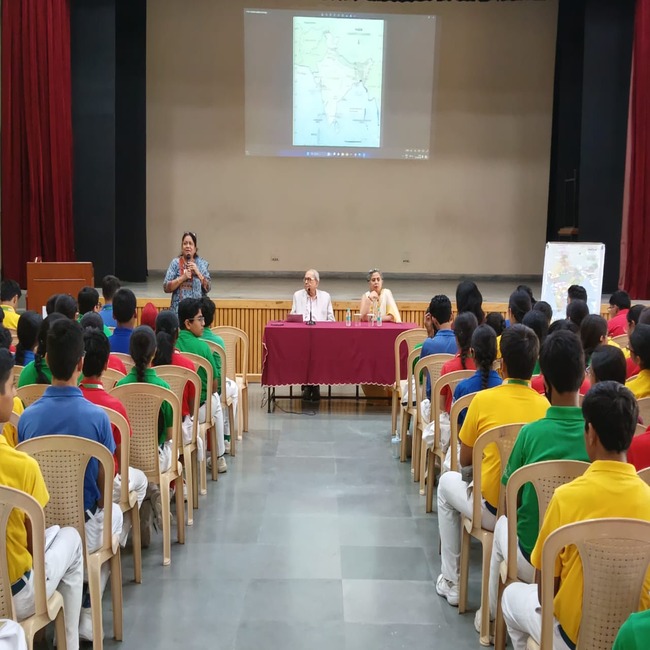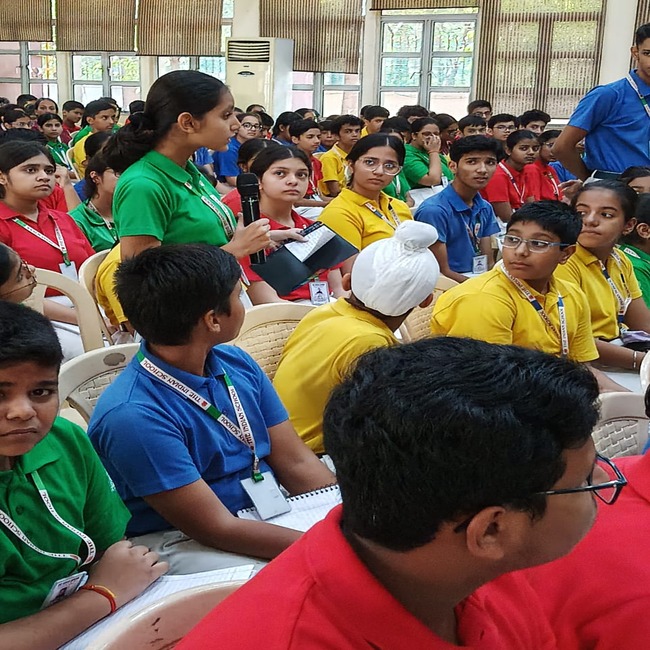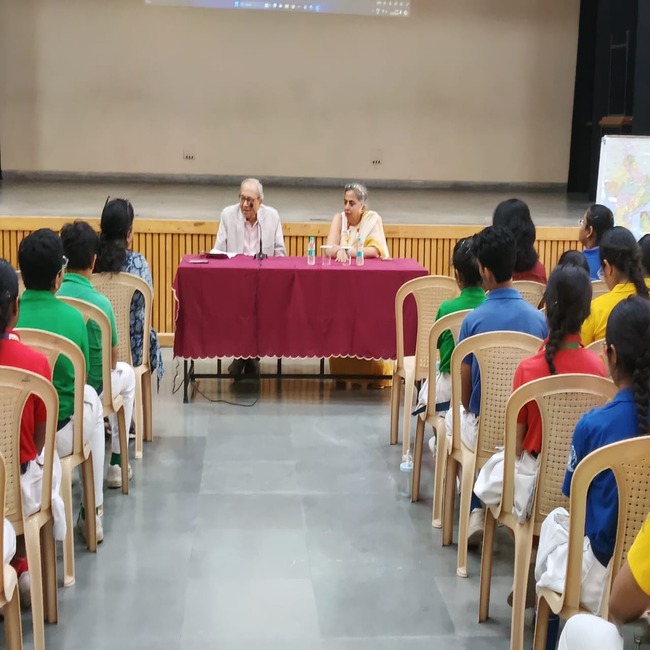School Chairman Mr Goradia interacts with the students of classes 9 and 10 about India's Troubled Neighbourhood
On 25 September 2025, Chairman of our School, Mr Prafull Goradia, addressed the students of classes IX and X on the significant and thought-provoking topic of India's Troubled Neighbourhood. The interactive session provided students with a platform to raise questions and share their perspectives, while receiving valuable insights from Mr Goradia’s deep understanding of the subject.
The dialogue began with Chairman Sir inviting questions from the students about the challenges that India faces in her immediate neighbourhood. Students were curious to know about the role that India plays and the impact she can have in responding to the recent episodes of political turmoil in neighbouring countries such as Bangladesh, Nepal and Pakistan. They highlighted their concerns on issues ranging from unstable governments and cross-border tensions to the larger geopolitical shifts in South Asia.
A major focus of the discussion revolved around the future and relevance of the South Asian Association for Regional Cooperation (SAARC). Several students questioned whether SAARC, which was envisioned as a platform for regional collaboration, can be revived in today’s complex political environment. They also enquired about the limitations that India faces in fostering cooperation with her neighbours, given the ongoing disputes and competing national interests.
Responding to these questions, Mr Goradia provided a historical as well as contemporary perspective. He cited examples from India’s diplomatic history, underlining the efforts made by leaders in the past to build bridges with neighbouring nations. At the same time, he drew parallels with present-day challenges, such as the fluid political situation in South Asia, cross-border migration, and the rise of economic dependencies.
He emphasised that maintaining sovereignty and territorial integrity remains a top priority for India. He explained that effective boundary management and vigilant patrolling are essential not only to secure India’s frontiers but also to prevent spill-over effects of instability from neighbouring states. In this context, he pointed out how economic, political, and social pressures in one country can often create a ripple effect across borders, destabilising the region as a whole.
Drawing attention to global parallels, Mr Goradia compared South Asia’s situation with the current crises in Europe. He explained how countries there, are grappling with socio-political and economic challenges, resulting from porous borders and internal conflicts. He reminded the students that such scenarios highlight the importance of a nation like India being prepared to safeguard her own interests while still striving to contribute to regional peace and cooperation.
The session concluded with an engaging reflection on India’s responsibility as a rising global power. Mr Goradia urged the students to view these issues not only as political events but as lessons in diplomacy, governance, and citizenship. He encouraged them to remain informed about international affairs and to recognise the role of young citizens in shaping India’s future.
Overall, the address was enriching and thought-provoking, leaving students with a greater awareness of India’s foreign policy concerns and the complexities of its regional relationships. The interactive nature of the session made it both engaging and insightful, ensuring that the students walked away with a deeper appreciation of India’s position in a turbulent neighbourhood.















